This article introduces some new online referral tools, which can be used by consumers or practitioners to briefly check symptoms or define the problem, then find relevant information, face-to-face, phone, or online services without needing to speak to someone.
Online referral tools offer discretion when someone is not ready to seek formal help or wants to manage things on their own with some support. Online referral tools might also facilitate formal help-seeking amongst consumers who do not know where to start or who struggle to find available or appropriate services. These tools are available 24/7, so can help people at times when they are ready and feel motivated to engage in support.
In this article, we outline free, confidential, online tools providing referral to evidence-based resources, digital interventions, and local face-to-face services. Existing online referral tools currently comprise those for general use and focus on particular demographics or topics, including youth, alcohol and other drug use problems, and eating and body image concerns.
A few safety issues to consider:
These resources do not take the place of a mental health assessment or provide a diagnosis or treatment plan but can be used to facilitate engagement with mental health services.
Online referral tools provide people with treatment options, which may or may not be useful for them.
Online referral tools are not monitored live by clinicians, so clinicians are still required to take responsibility for monitoring engagement and the mental health outcomes of their clients.
General Use

Head to Health
Sam the Chat Bot
https://www.headtohealth.gov.au/find-with-sam
Sam, the virtual assistant, helps link consumers to digital mental health services. Consumers simply type in a situation or concerns, then Sam provides relevant service tiles of government-funded, evidence-based, phone services, online programs, apps, moderated peer-support forums and general Head to Health information pages.
These resources can then be saved to your favourites or shared via email.
Youth
ReachOut Next Step
https://au.reachout.com/articles/not-sure-whats-wrong-try-nextstep
ReachOut Next Steps provides young people aged 18–25 years with links to suitable support options in 3 simple steps. The online tool allows consumers to select the target issue/s from pre-populated fields, prioritise which problem they want to work on first and rate how much the problem is affecting them. Consumers then receive personalised support options, drawing from evidence-based phone counselling services and online programs, government community and tertiary mental health services, and ReachOut information pages.
For consumers reporting severe difficulties or thoughts of self-harm or suicide, the tool embeds links and pop-ups to crisis support services and directs consumers to information to facilitate engagement in face-to-face assessment and treatment.
Consumers can “save” resources to their plan which can be accessed later by setting a pin.
Alcohol and Other Drugs

Alcohol and Drug Foundation
Path2Help
https://adf.org.au/help-support/path2help/
Research by the ADF found that most people (71%) find it difficult to access alcohol and other drug information and support because they don’t know where to look or what questions to ask. In response, the ADF created Path2Help – a free, confidential online referral tool for anyone looking for support with alcohol or drugs.
By far the most in-depth referral tool, Path2Help asks up to 11 questions about the frequency of use of different substances and associated risks and problems using the ASSIST (Alcohol, Smoking and Substance Involvement Screening Test) model. This allows a consumer to explore their motivation to change whilst assessing which services might be most appropriate.
The tool then links consumers to over 7,000 specialist and local face-to-face support services, such as rehabilitation, counselling, state-run services, and harm minimisation projects such as supervised injecting centres and needle and syringe programs. Additionally, the tool links consumers to ADF information resources on having conversations about alcohol and other drugs, managing conflict, harm minimisation strategies, tips on finding support and treatment, and more.
The tool refers consumers to specialist youth services for those under 25 years and provides tailored options for people supporting loved ones who use alcohol and/or other drugs.

Eating and Body Image Concerns
Butterfly Foundation
Chat to Kit
https://butterfly.org.au/chattokit/
Chat to Kit is a chatbot providing free, confidential, 24/7 referral to evidence-based information, coping tips, resources and phone and online support services for individuals or their loved ones struggling with body image or eating concerns.
Chat to Kit was developed by researchers at Monash University and Swinburne University and is hosted through the Butterfly Foundation website.
Users simply click through a brief selection of prepopulated options to be referred to pages to learn facts about body image and eating concerns, try different evidence-based coping skills, link to Butterfly Foundation supports for coping during COVID, receive referral to crisis services, or receive referral to online individual or group programs to support carers of someone with an eating disorder.
Chat to Kit is for use by individuals aged 13 years and over, with children under 13 instructed to have a parent present.







